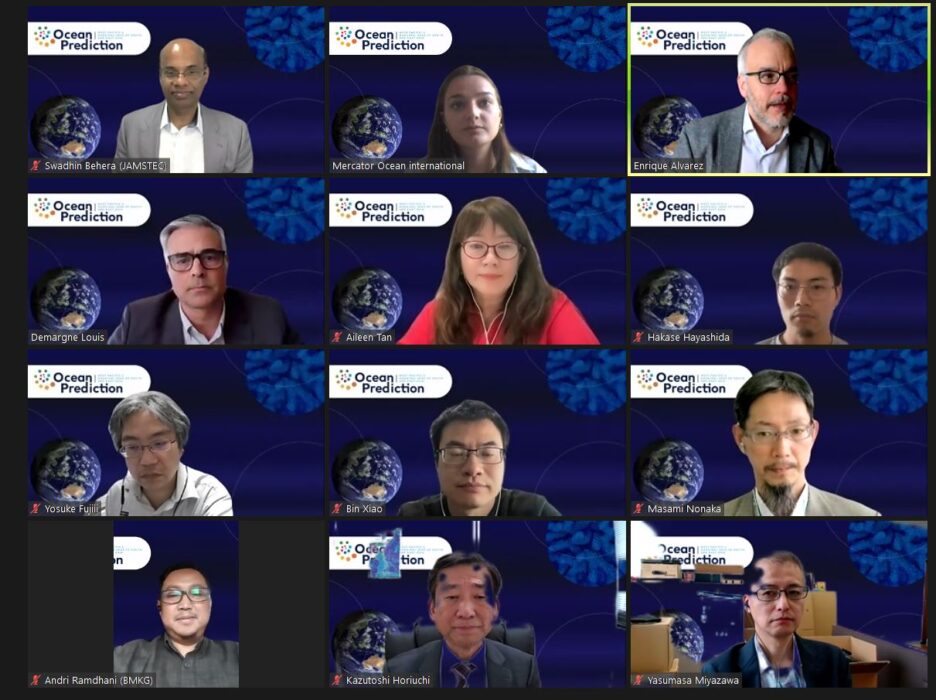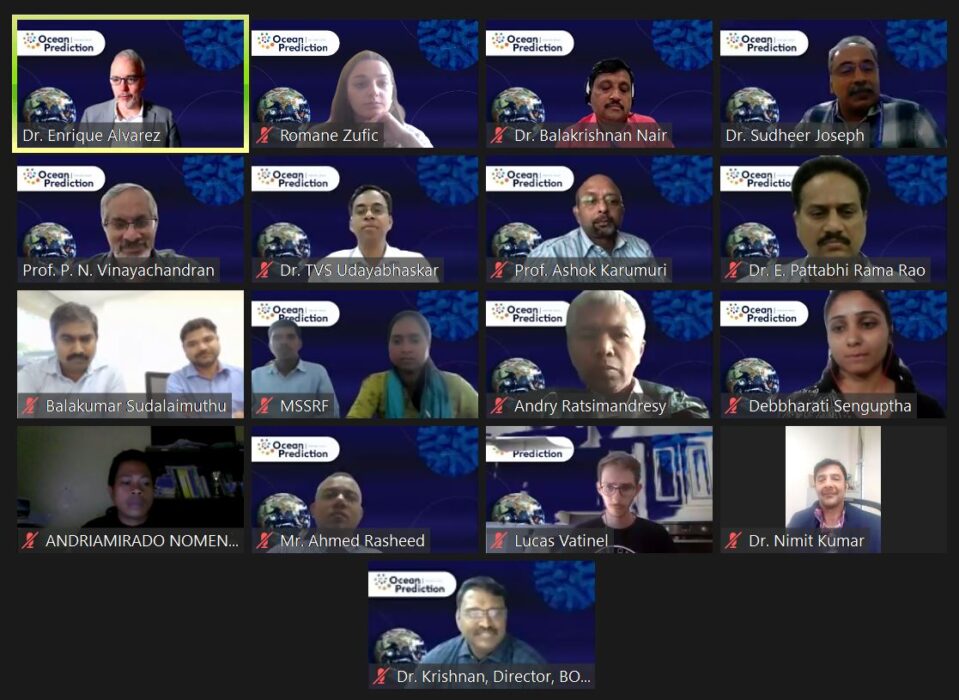The OceanPrediction Decade Collaborative Centre (DCC) was officially launched with its kick-off meeting on January 11th-12th, 2023. Since then, some important milestones have been reached, notably the formation and launch of several Regional Teams, fully aligned with OceanPrediction’s main objectives. This regional approach is vital for reaching “a predicted ocean based on a shared and coordinated global effort in the framework of the UN Ocean Decade”.
The OceanPrediction DCC: two types of collaboration structures
The United Nations (UN) Decade of Ocean Science for Sustainable Development 2021-2030 (referred to as ‘the Decade’) is coordinated by IOC-UNESCO to promote transformational, large-scale change to advance urgent action on moving from the ‘ocean we have’ to the ‘ocean we want’. As a part of this effort, the IOC-UNESCO entrusted Mercator Ocean International with hosting and piloting the OceanPrediction Decade Collaborative Centre, whose vision is “to galvanize and coordinate efforts towards the co-development and integration of worldwide ocean prediction activities, serving Decade objectives and in close collaboration with the Decade endorsed actions and other stakeholders”.
To achieve its objectives, OceanPrediction is developing worldwide two types of collaboration structures:
- Regional Teams, acting as a backbone for the creation of a community to develop, implement, and exploit advanced ocean forecasting systems worldwide
- Ocean Forecasting Global Co-Design Team, focused on designing an architecture for the future implementation of robust and easy-to-implement ocean forecasting services to deliver as one. This Team is manned by experts on the different elements of the ocean forecasting value chain.
Both structures will work in close cooperation. For example, the regional teams will contribute to the ocean Forecasting Co-design Team by providing regional dimensions to all the analyses.
What are the objectives of the Regional Teams?
The regional teams are the foundation of the « global community » dimension of the OceanPrediction DCC. They are also designed considering the participation of the GOOS regional alliances and UNEP regional seas. As a result, nine Regional Teams were formed:
- African Seas
- Antarctic
- Arctic
- Indian Seas
- Mediterranean & Black Sea
- North America
- North East Atlantic
- South & Central America
- West Pacific & Marginal Seas of South and East Asia

Overall, the Regional Teams aim to facilitate collaboration, knowledge-sharing, and advancements in ocean forecasting within their regions while contributing to global objectives. More specifically, they have the following objectives:
- Act as regional nodes of the OceanPrediction DCC
- Contribute to the coordination and cooperation with ocean forecasting-related Decade actions in the region
- Identify gaps and ways forward in the regional landscape of ocean forecasting
- Support OceanPrediction DCC in the design and organization of regional events for capacity building, ocean literacy and other purposes, such as courses, workshops, hackathons, etc.
- Advocate for regional implementation of Best Practices, Standards and Tools derived from OceanPrediction activity
- Collaborate with the other OceanPrediction DCC Regional Teams to support global actions. To facilitate this task, the steering group of each Regional Team will be composed by several positions having the same roles (see next section)
- Support OceanPrediction DCC in obtaining information for the three Atlases (services, institutions, persons) and any other relevant data
- Promote the use of OOFS in each region for decision-making purposes, including capacity development, technical, policy and legal aspects
The OceanPrediction DCC Office in Toulouse will encourage the Regional Teams to develop and implement additional innovative ideas, always aligned with the OceanPrediction DCC objectives, and integrated on its activities.

How are the Regional Teams organised?
All the Regional Teams are open to broad participation and membership in their corresponding regions. They will be formed bya broad range of individuals, belonging both to public and private sectors, covering different topic and interests, from science to applications, coastal to open ocean, biological to physical services, etc.
The Governance of the Regional Teams will be based on the activities of a Regional Focal point and of a Steering group:
Regional Focal point
One institution, with activities on ocean forecasting, will act as focal point for each corresponding Regional Team. The representative of this institution will act as chairperson, responsible for the overall functioning of the Regional Team and for the communication and interfacing between the OceanPrediction DCC Office in Toulouse. It will also contribute to facilitate and support the implementation of the work of the Regional Team.
Steering group
The role of the steering group is to organise the activities and ensure the connection between the different Regional Teams, and with the Technical Team. The steering group will be formed by experts on the following disciplines:
- Ocean observing
- Ocean forecasting: physics
- Ocean forecasting: Biogeochemistry
- Ocean forecasting: Climate
- Connection with users (downstream services)
- Capacity building/Ocean literacy
- New digital ocean developments, including Digital Twins
- Policy and legal aspects at the region
These experts will promote actions related to the OceanPrediction DCC objectives in their fields of expertise. They will be in close contact with the other Regional Teams experts, forming a worldwide network on their respective disciplines and they will promote specific activities and sharing of knowledge.

The Regional Teams’ kick-off agenda
The nine regional team groups will have kick off meetings throughout 2023. Each of them will be the occasion to announce the region’s Steering Teams but also to define the specific goals. Register now to join us for the next meetings!
| Region | Date of 1st meeting | Zoom Links |
| West Pacific and Marginal Seas of South and East Asia. | April 21st | |
| African seas incl. subregional division to address the differences in technical development. | June 14th | Click to register |
| Indian seas covering South Asian Seas and ROPME Sea Area | May 3rd | |
| Mediterranean and Black Sea | TBA | |
| North-East Atlantic | July 5th | Click to register |
| South and central America | TBA | |
| North America | TBA | |
| Arctic | June 28th | Click to register |
| Antarctic | TBA |
